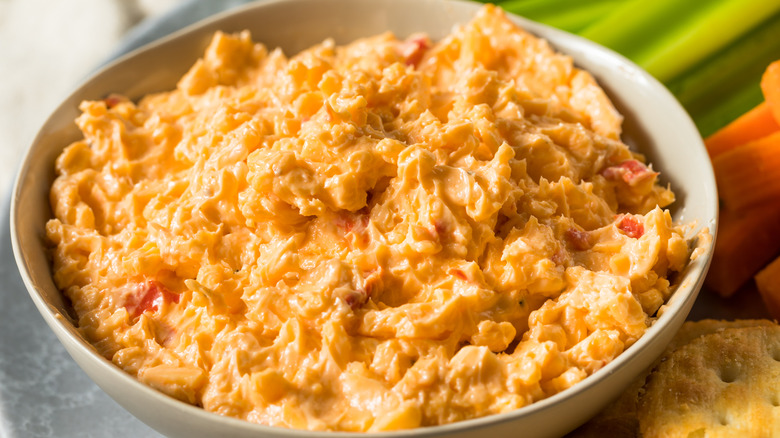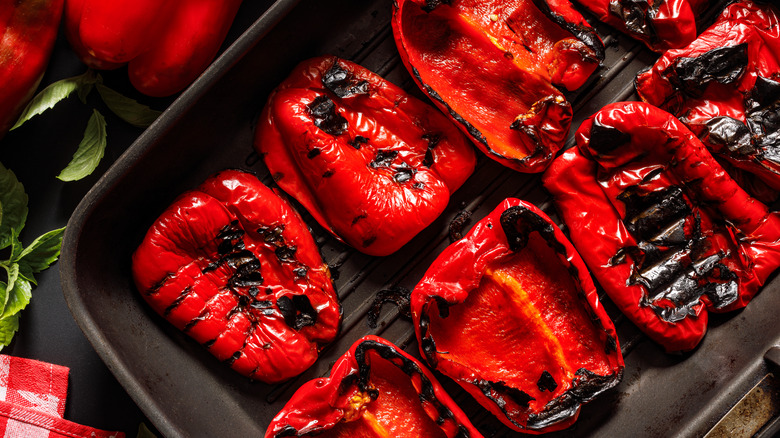This Ingredient Will Take Your Pimento Cheese To The Next Level
Some recipes may be "classics," but that doesn't mean you can't put your own spin on them. As Tufts' Friedman School's senior research dietitian Helen Rasmussen says, "Recipes are crafted by people who simply had ideas about what ingredients may work together, but there's no reason you can't change them. You've probably found that even some published recipes don't taste quite right when you first make them, so you make notes and tweak them next time to get a better result." It is just this kind of tweak that could take a sacred Southern classic like pimento cheese from wow to whoa!
The suggestion comes from New York Times bestselling author Anne Byrn, who consulted with Julie Osteen of South Carolina, a woman Byrn says is "known for her pimento cheese." (Fun fact: Osteen is also Byrn's daughter's mother-in-law.) Osteen revealed that she did, in fact, have several ingredients that she used to make her pimento cheese "a cut above." At the top of her list of pimento cheese hacks: using roasted red peppers instead of pimentos (via Southern Kitchen).
It might seem heretical to take the ingredient for which a dish is named and replace it with something else, but here's why the change isn't as radical as you think.
Roasted red peppers will up your pimento cheese game
Pimento peppers are round, red, and shaped like a heart, which is why they are also known as cherry peppers. The Spruce Eats describes them as "sweet and mild, and unlikely to cause trouble if you cannot tolerate spicy peppers." Even if you've never had pimento cheese, you've likely tasted pimentos — as they are often used to make the spice paprika.
Like pimentos, red peppers are sweet, and full of natural sugars. Unlike pimentos, however, their flavors come to the fore when they are roasted, thanks to the Maillard reaction, which not only changes the color of an ingredient as it is being cooked, but also alters its flavor qualities, making it sweeter and smokier (via The Tasty Tip).
Southern Living is behind the roasted red pepper substitution; in fact, it even calls for using marinated roasted red peppers, which provide an extra zing with the inclusion of garlic, mustard seed, or red wine vinegar to the pickling brine.
So if you've made the switch and feel that referring to the spread as "pimento cheese" might be a bit dishonest, go ahead and call your spread whatever you want. After all, as the great William Shakespeare put it: "What's in a name? That which we call a rose by any other name would smell as sweet."

